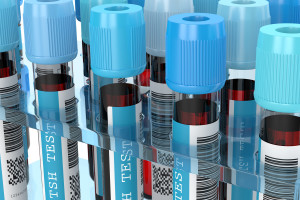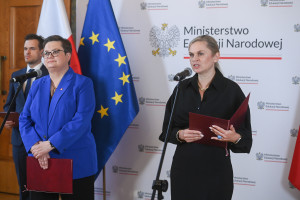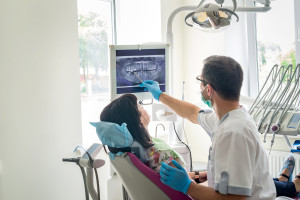Long lines and a lack of uniform standards. Alivia points out flaws in the implementation of the NSO.

- Participation in HPV screening and vaccinations is significantly below targets – for example, only 11% of girls were vaccinated instead of the planned 60%.
- There is a lack of effectiveness measures, independent evaluation and real progress in the coordination of patient care.
- The Health Committee adopted the report on the implementation of the NSO, despite the lack of answers to questions about specific corrective actions
The Alivia Foundation has published a report summarizing the implementation of the National Oncology Strategy (NSO) for 2020-2024. The conclusions are alarming: most of the Strategy's expected results have not been achieved, and, in the Foundation's opinion, some tasks were completed only "on paper."
From the patient perspective, little has changed since 2020. They still wait in lines, there are no uniform treatment standards, and the quality of care largely depends on where they live. In terms of preventive care, we are miles away from Europe. Despite this, on July 8th of this year, the Parliamentary Health Committee unanimously adopted the report on the implementation of the National System of Health Reform (NSO) for 2024.
One in four of us will develop cancer, and one in five will die from it. Each year , over 180,000 Poles are diagnosed with cancer, and approximately 1.17 million people in Poland currently live with cancer. Cancer is already the leading cause of death among working-age people, and the problem is growing.
A strategy full of unfulfilled promisesThe National Oncology Strategy was intended to be a comprehensive response to the dire situation of Polish cancer patients—a "roadmap" for Polish oncology. In this context, the conclusions of the 2024 National Oncology Strategy implementation report prepared by the Ministry of Health and the latest report by the Alivia Foundation , "Ticked Boxes – Unfulfilled Promises. Implementation of the National Oncology Strategy for 2020-2024 from a Patient Perspective," are particularly concerning. Despite the formal completion of many tasks, Polish cancer patients still experience no real improvement.
Key indicators for population health, such as increased participation in screening tests, HPV vaccination rates, and improved quality of diagnosis and treatment, have not been achieved.
Problems known for years still without solutionsThe Alivia Oncofoundation pointed out the Strategy's poor quality even before its implementation. Today, despite the passage of time, many problems remain unresolved – as evidenced by numerous examples and data included in the latest report.
In the field of screening tests (area 3 of the Strategy), in 2024 the level of attendance for screening mammography was 33%, instead of the planned 60%. For cytology – 11%, instead of the planned 60% by the end of 2024, and for colonoscopy – 14%, instead of 30%.
In terms of primary prevention (area 2 of the Strategy), HPV vaccination coverage has reached only about 11%, with a target of 60% expected by the end of 2024.
Another example in this area is the percentage of people using tobacco products, which is increasing, not decreasing. In 2022, the percentage of smokers was 30.8% among men and 27.1% among women – and this trend is increasing.
Area 5 of the Strategy (Investments in the Oncology Care System) also leaves much to be desired. Tools for monitoring the patient's diagnostic and therapeutic pathway (e-DILO card) have not yet been implemented. Despite formal initiatives, an effective quality control system has not been established in Polish oncology, and patients have no guarantee that treatment is being administered according to the latest standards.
Polish cancer patients still wait too long for diagnosis and treatment, and once they begin, their journey is not monitored. The latest report from the Alivia Oncology Foundation shows that the formally "checked off" tasks have not translated into real change in patients' daily lives.
“5 Deadly Sins”, or the key mistakes of the National Oncology StrategyAn analysis conducted by the Alivia Oncology Foundation identifies five systemic errors that not only hinder the achievement of the goals of the National Oncology Strategy but also obscure the actual situation of cancer patients in Poland. These "cardinal sins" mean that even tasks formally considered completed fail to translate into real improvements in the quality of care.
- 1. Lack of measures of effectiveness and effects
Many actions have been assigned a "completed" status despite achieving no tangible results for citizens or patients. In most cases, the Ministry of Health does not report actual success rates.
- 2. Frequent changes of deadlines and redefinition of goals
A significant number of tasks included in the NSO were postponed to later years or "implemented" in a modified, less ambitious form. "Such actions dilute the Strategy's original goals and prevent an objective assessment of progress," the Foundation notes.
Example: In the original version of the NSO, the content of task 17.2 read: “By the end of 2020, we will implement a new organizational model of patient care (“Cancer Units”) for key cancers: lung, colorectal, gynecological and urological cancers.” The resolution amending the resolution on the adoption of the NSO from December 2024 adopted the new wording: “We will implement a new organizational model of patient care (“Cancer Units”) for key cancers: colorectal cancer in 2021, lung cancer in 2025, gynecological and urological cancers in 2026.”
- 3. Formalism of reporting
Reporting on NSO implementation is often purely formal. Tasks are considered completed based on individual, symbolic actions (e.g., creating informational materials or conducting a pilot project), rather than implementing lasting, systemic solutions available to patients nationwide.
- 4. Regional inequalities and limited access
Access to modern diagnostics, treatment, and psychological support for cancer patients continues to be deeply disparate geographically. Many solutions implemented within the NSO framework operate only in selected voivodeships or facilities, meaning that place of residence often determines the quality of treatment.
- 5. Lack of independent, external evaluation
Assessment of the Strategy's implementation rests solely with the Ministry of Health. There is a lack of ongoing, external monitoring of progress involving patient organizations and independent experts. Without a transparent and objective assessment, it is impossible to reliably answer the question of whether the NSO will actually deliver tangible results.
Political formalism and the sad reality of patientsOn July 8th of this year, the Parliamentary Health Committee unanimously adopted the report on the implementation of the National Social Responsibility Program (NSO) for 2024. In presenting the document, Deputy Minister Marek Kos focused mainly on tasks completed in 2024. He did not address or respond to a question posed by the Alivia Oncofoundation about what additional strategies and actions the Ministry of Health would undertake to achieve the expected results planned in the NSO.
An analysis of the implementation of the National Oncology Strategy for 2020-2024 clearly shows that where patients should feel real change, it is still lacking. In the areas where the implementation of the National Oncology Strategy should be most noticeable – rapid diagnostics, equal access to treatment, and professional coordination of the patient's path – the necessary solutions are dramatically lacking, according to a report by a patient organization.
"Paper reforms won't improve the situation in Polish oncology. We need real change that will translate into shorter waiting times, faster diagnosis, and more effective treatment. Until we achieve this, we can't call the National Oncology Strategy a success," comments Joanna Frątczak-Kazana, Deputy Director of the Alivia Oncology Foundation.
The full report, "Ticked Off Tasks - Unfulfilled Promises. Implementation of the National Oncology Strategy for 2020-2024 from a Patient Perspective," is available on the Alivia Foundation website.
Copyrighted material - reprint rules are specified in the regulations .
rynekzdrowia













